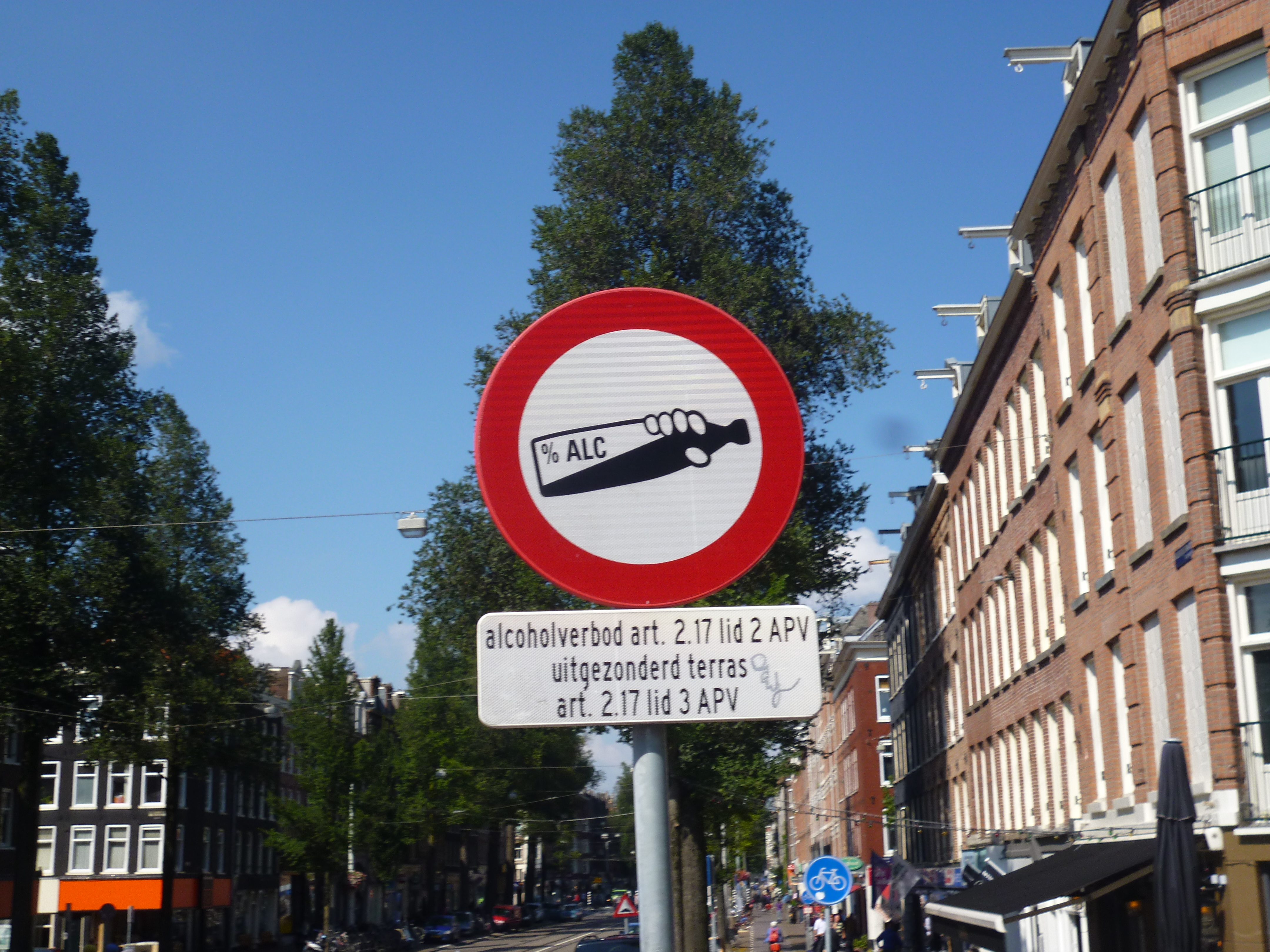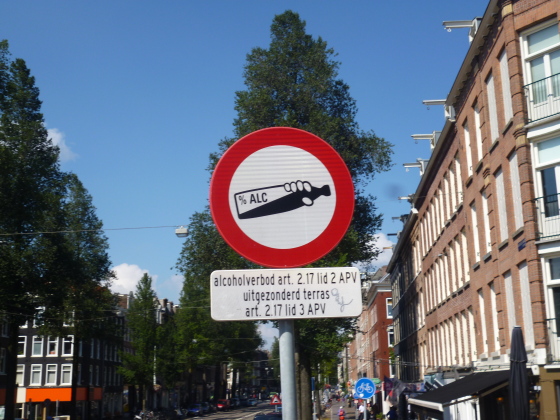Alcohol does damage adolescent brain

 The headlines earlier this week were clear. A new research project seemed to indicate it was okay for teenagers to drink alcohol after all. But research results aren’t always easy to interpret and we shouldn’t jump to conclusions, writes Amsterdam University professor Reinout Wiers.
The headlines earlier this week were clear. A new research project seemed to indicate it was okay for teenagers to drink alcohol after all. But research results aren’t always easy to interpret and we shouldn’t jump to conclusions, writes Amsterdam University professor Reinout Wiers.
The Volkskrant put it on its front page: research by Sarai Boelema cast doubt on the fact that alcohol causes brain damage in adolescents. In an analysis the following day, a link was made to government policy: ‘adolescents who drink don’t seem to suffer any noticeable brain damage. Is it time to tone down the increasingly strict rules surrounding adolescent drinking?’ The author of the piece didn’t think so.
But before we even think about making the link to policy, we have to put Boelema’s study in perspective. What do we know about the links between alcohol and brain development?
I want to make clear that the study itself was thorough and that the results were analysed (I was a member of the thesis committee), and that I’m in favour of publicising all scientific results, both positive and negative. But before people jump to the wrong conclusions, it would be useful to put the matter in a broader perspective.
Four links
Scientific literature on the subject distinguishes four links:
1. Normal growth of the self-regulatory brain functions is impeded by excessive alcohol use (this is what the newspaper article alluded to)
2. The inverse link: children with relatively weak self-regulatory skills often go on to drink to excessively.
3. Excessive drinking at a young age makes the brain hyper sensitive to the substance which automatically triggers reactions which lead to more alcohol abuse.
4. Children with a high sensitivity to reward are relatively more likely to become addicted.
As far as the relationship between alcohol and self-regulatory functions is concerned, earlier articles have shown that the proof for the second link – the inverse relationship – is much more compelling than the first: dozens of studies have shown that children with weak self-regulatory skills are at a higher risk of alcohol abuse and addiction.
The first link has been based on two lines of enquiry. Research based on animal testing – the effects of alcohol on the brain development of rats – showed that the self-regulatory functions of the animals were less strong. But how strong are the self-regulatory functions of a rat? In other words, what is the validity of an animal model?
The other line of enquiry is the one where brain functions of excessive drinkers are compared to those of moderate or non-drinkers. But these scans contain so much information there will always be differences and what is more, the results are usually based on small-scale, random probes. If differences are repeatedly found at brain level, the question is if these differences weren’t already present before the teenagers started drinking heavily (link 2) or if they are the result of alcohol abuse (link 1). In order to find out we need to measure the children’s brain functions beforehand and then measure them again after some of them have gone on to abuse alcohol.
Reservations
Clearly the research carried out by Boelema et al. (part of the Trails study) filled a need: a large group of children (over two thousand) did a number of tests at age 11 and the process was repeated at age 19. As this paper reported, none of the children showed significant ill effects from excessive alcohol use. Some qualifications of the findings are in order.
Firstly, no direct measurements of brain functions were made, only general neuropsychological tests measuring memory, impulse control and concentration. The sensitivity of the tests used is important as well because Boelema also investigated the inverse link (children with weak self-regulatory functions will go on to drink more) and found no significant differences here either.
That is all the more remarkable because over the years dozens of other studies have found clear evidence for just that. There can only be one of two conclusions: either the earlier studies got it wrong or the sensitivity of the tests is at fault.
The latter seems to be most probable, not only because of the volume of the earlier research but because the result of a questionnaire used by Boelema regarding self-control in the same children was in line with that research.
So if we conclude that the culprit is the sensitivity of the tests the conclusion that can be drawn from them is by necessity weakened as well: if these tests carried out on thousands of children do not find a link clearly established by many researchers in a much smaller group what can you expect these tests to show on the effects of alcohol on the development of the brain?
And inversely, if the tests had shown the expected result of alcohol abuse in later life the negative conclusion would have been all the stronger. As far as link 1 we are back to where we started: we don’t know to what extent alcohol damages the self-regulatory functions of the adolescent brain. We need more research before we decide to go easy on adolescent drinking.
Motivational brain functions
Apart from the supposed negative effects on the self-regulatory functions, alcohol also affects the motivational functions of the brain. These effects weren’t part of Boelema’s research. After excessive alcohol use the brain becomes hyper sensitive to everything related to alcohol. It automatically triggers all kinds of associations (pleasure, relaxation) and activates a tendency to move towards alcohol.
In the last ten years some thirty studies looked into these reactions in teenagers and they have shown that such processes do indeed occur in youngsters who abuse alcohol.
To what extent these automatically activated motivational processes influence behaviour depends on the strength of a person’s self-regulatory functions: in youngsters with relatively weak self-regulatory functions the influence of these motivational processes is stronger which suggests a link with a higher risk of addiction at a later stage.
Where there is a lack of sufficiently strong self-regulation parents should step in and set boundaries: boys with a tendency to move towards alcohol in particular will go off the rails if parents don’t give them clear rules about alcohol use. There is evidence then that adolescent brains are damaged by alcohol, initially through motivational processes and perhaps through self-regulatory processes that were not picked up on by Boelema’s tests.
As far as the fourth link goes – children with a highly developed reward sensitivity are more prone to alcohol addiction – there is research to support that too. Another Trails study, of which Boelema’s research forms part, shows that children who tend to focus on things which signal a possible reward drink more and smoke cannabis more. Another study linked this reward sensitivity to the strong development of the hyper-sensitive reward reaction to alcohol.
In short: the sensitivity of the tests used by Boelema was not very high. They don’t give support to the inverse link (children with weak self-regulatory functions go on to drink more) which earlier research clearly does and for which Boelema herself found a link during a random probe using a simple questionnaire.
There is, however, growing evidence for the effects of alcohol on motivational processes: the brain becomes hyper sensitive to alcohol which, in youngsters with weak self-regulatory functions, can lead to alcohol abuse and addiction.
Other negative effects of alcohol use, not included in this particular study but pointed out by Boelema, are sufficiently well-known. We only have to think of the relationship between alcohol abuse by youngsters and accidents and aggressive behaviour, and the heightened risk of several types of cancer.
All in all there are enough reasons to keep to the age limit and continue the policy of discouraging the use of alcohol in youngsters.
Reinout Wiers is Professor of Developmental Psychopathology at the the University of Amsterdam
This opinion piece was published earlier in the Volkskrant
Thank you for donating to DutchNews.nl.
We could not provide the Dutch News service, and keep it free of charge, without the generous support of our readers. Your donations allow us to report on issues you tell us matter, and provide you with a summary of the most important Dutch news each day.
Make a donation